Screening close to 100 short films from August 14 – 20, 2024, the Tel Aviv International Student Film Festival (TISFF) reflects the vast diversity of themes and approaches to film from emerging filmmakers worldwide. From a first look at a selection of the films to be shown at the festival, the burgeoning creativity and deep engagement with critical issues is immediately apparent. There’s a lot to look forward to, and the full program is available on the TISFF website.
Some first impressions:
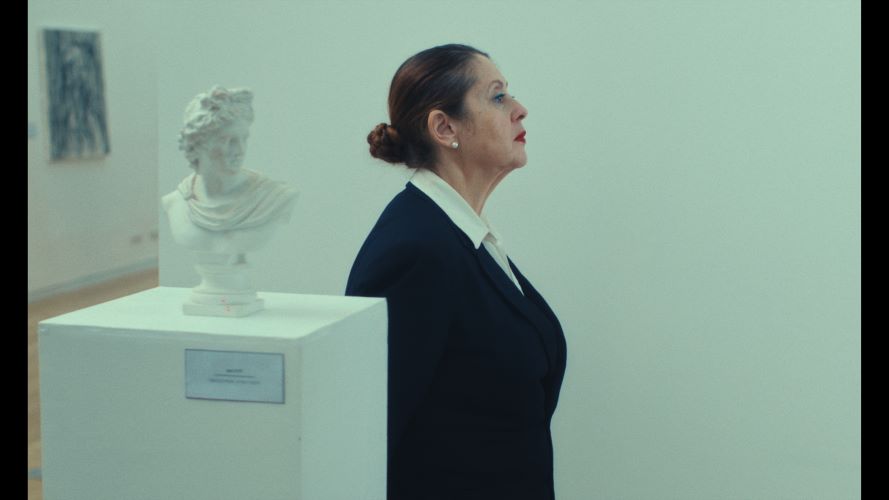
Opening night will feature Roy Kanevsky’s The Guard, which takes a closer look at the experience of Luda, whose job as a guard in a museum renders her almost invisible as she sits in her chair, literally in the corner. The film utilizes the clean lines and austere aesthetics of a museum of modern art to tell a story of isolation and alienation. Although in her uniform she represents authority, and as such tends to inspire a negative reaction in the people she encounters, in practice, due to her difficulty with Hebrew and resulting insecurity, Luda has no authority or agency. Angela Steingart delivers a moving performance as Luda, conveying her discomfort and fears in eloquent body language.
In a few deft strokes, Kanevsky conveys the characters of Luda, her fellow guard (Vanya Yohanan Lerman), and her supervisor (Adam Gabay), and imbues the film with humor as well, I particularly enjoyed the appearance of a false cognate (it’s a word in one language that sounds like a word with a different meaning in another language), especially since I do happen to know that one word in Russian. Among other themes, it’s a film about feeling invisible, and wanting to be seen.
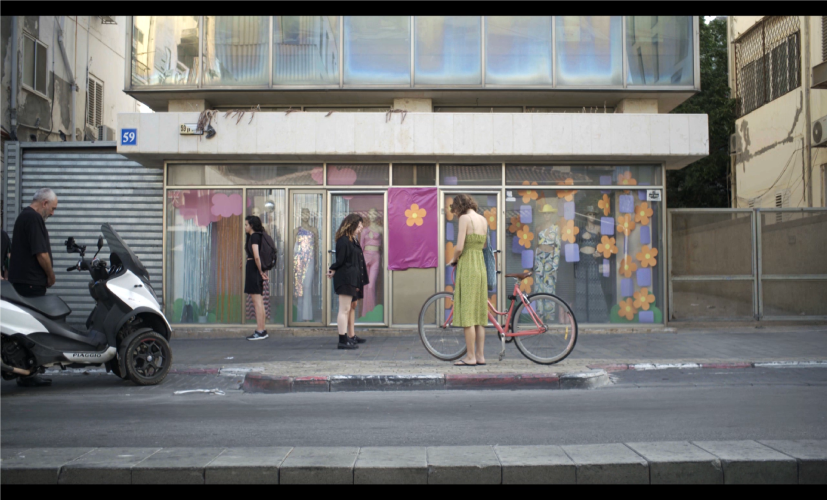
In the Israeli Competition, Amit Vaknin’s It’s Not Time for Pop reflects nuances of the Israeli reality that are not always apparent to the outside observer. Yael (Yarden Shay) is desperate to leave her home and find an apartment – immediately. Not an easy task in Tel Aviv at the best of times. Youthful and lovely as she rides her bike down the South Tel Aviv streets in a cheerful, green sundress, she appears light and carefree. But like everyone else, she comes to a standstill at the sound of the siren. It’s Memorial Day, and the sense of collective grief is pervasive.
Yet the legacy of loss leaves its mark on Israeli culture in different permutations; some live their loss for eternity, some seek to escape it, for some there is a hierarchy of pain, and bereavement can also become currency. Following Yael’s search for an apartment, her resourcefulness and determination are revealed, as well as her vulnerability and naïve hopes. Vaknin is a student at the Steve Tisch School of Film and Television at Tel Aviv University, and It’s Not Time for Pop participated in the student competition of the Cannes Film Festival.
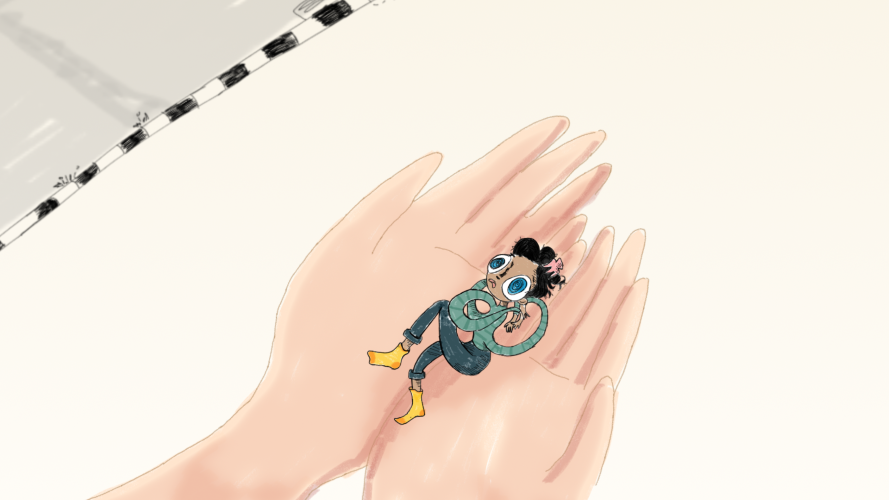
As funny as it is poignant and relatable, Aviv Gafni and Alma Keni’s Ugh, Listen! depicts an evening in the life of a young woman, as she toils in the kitchen of a pizza place, while hearing the incessant buzz of her phone as messages keep coming in from her friends. The film expresses with evocative art the emotional landscape of our time, the daily annoyances, worries, fears and despair – our need to reach out and know that someone is listening, that someone cares. And just as precisely attuned to the emotions, depicting the experience of the woman receiving the messages, stuck in her own routine and the rush of customers, the inexorable pull of the phone and its sounds alerting her to every incoming message.
Imaginative use of animation brings the voice messages to vivid life as one friend reports being stung by a bee, another is stuck in traffic, and myriad others weigh in on the vagaries of their day and feelings. Depicting one as a lemon in a bowl of lemons as she talks about the guy who has the hots for her (but has a girlfriend), another taking a chain saw to a red velvet chair, and yet another braving the desolate snows of the arctic as she walks to the mall – Keni and Gafni infuse the film with wry humor, color, and spirited energy. Gafni and Keni are graduates of the Screen Based Arts Department, Bezalel Academy of Art and Design, Jerusalem.
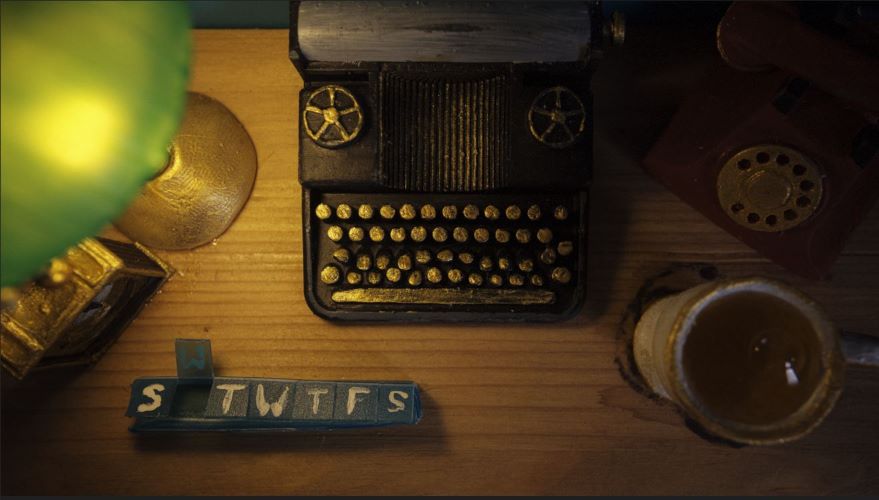
Omri Leshnick’s Yoel Artzieli is a moving portrait of enduring grief. An elderly man measures the passage of days by his pill box and spend those days typing letters on a manual typewriter. Letters written but never sent, to a son who can never again receive a letter. Leshnick is a student at the Bezalel Academy of Art and Design, Jerusalem.
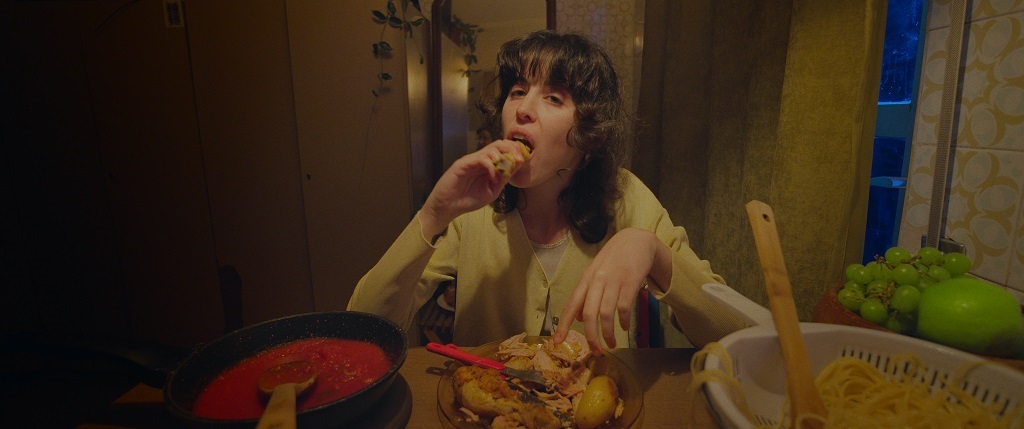
We all know things can get weird between roommates, Naama Lahav’s Mirror Image, takes it to the extreme, with violent and erotic undertones. The tensions involved in sharing living quarters, especially between people who don’t have much in common, are familiar. Yet as Stav (Shira Even) asks roommate Naomi (Lahav) to be more considerate, camera angles, and Naomi’s eyes wandering to the pink vibrator on Stav’s dresser indicate that there’s more beneath the surface here than mere annoyance. When Naomi’s boyfriend Michael (Yotam Jonathan Rabino) walks into the apartment using the key Naomi has given him – a line has been crossed and the tensions escalate into action. Suspenseful and funny (in a dark kind of way), the film succeeded in surprising me – I thought it was moving in one direction, but it took a sharp turn in another. Mirror Image was produced by the Sam Spiegel Film and Television School.
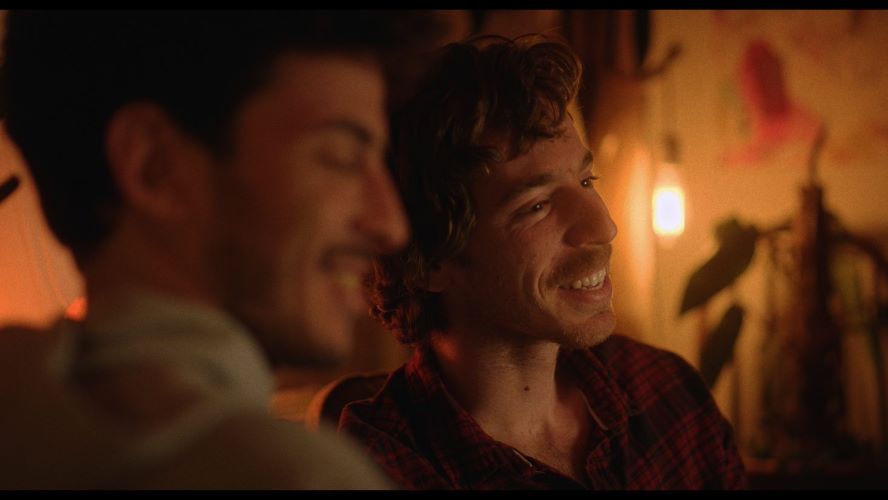
In the Independent Competition, Itay Segal’s Exes also involves an awkward roommate situation, but a dramatically different one. “All my exes are married now,” an emotional Yoav (Adam Gabay) declares, yet as the frame opens up, it becomes apparent that this is not a late night confession, but something a bit stranger – Yoav is rehearsing a text for an audition, with Roy (Uri Blufarb), the guy he’s just hooked up with, as his audience. Yoav seems to be hoping for more, while Roy seems uncertain at best, yet things are to get a lot more weird and awkward. The last person anyone would want to encounter over the course of a one-night stand is an ex-lover, any ex-lover, but of all the possibilities, meeting up with that mythological ex is the worst. Restless and unable to sleep, Roy wanders into the kitchen, and Yoav’s roommate (Lev Leib Levin) walks in, naked. The onscreen chemistry between all three men imbues the film with an undercurrent of heat, and Segal depicts the difficult encounter with sensitivity and warmth.

Pickles, directed by Ania Kaspi Shema and Miri Dochikian, conveys the vulnerability and loneliness of a 14-year-old girl. Living in a new country, having to adjust to a different language and customs, learning to read the local cultural codes, and hoping to make friends and fit in – Ina is contending with many challenges. Parted from her best friend Katyusha, letters become a lifeline, but they are also a reminder of all she has lost, and all that she does not yet have in her new home. Shema and Dochikian convey all this and more, following Ina’s experiences, revealing her feelings in the dissonance between words and images.
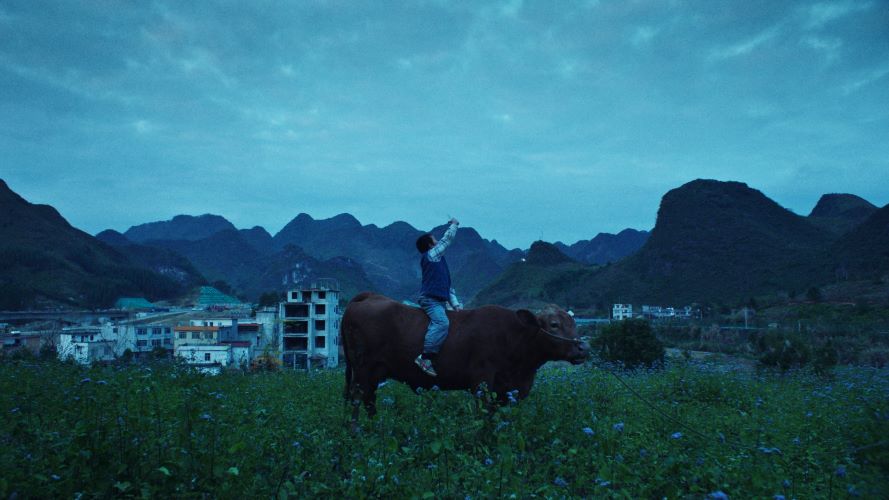
In the International Competition, Xiaohui and His Cows, directed by Xinying Lao, is a tender film set against the lush green landscape of rural China. Xiaohui (Jinhao Wei) lives with his grandfather Wei (Yuanmo Wei) in the countryside, while his parents work in a factory in Dongguan City. Working long hours with not much vacation time, the mandatory travel quarantine imposed due to COVID means that they will not be able to come visit Xiaohui. The young boy misses his parents, and takes comfort in his relationship with the animals, forming a special bond with a cow and her calf. Financial constraints compel Xiaohui’s grandfather to sell the calf, but Xiaohui is determined to prevent that from happening. Jinhao Wei invites the viewer’s empathy as young Xiaohui, imbuing the character with youthful inventiveness, and expressing the boy’s longing for his mother. The film was created as Xinying Lao’s MFA thesis film for New York University Tisch School of the Arts.
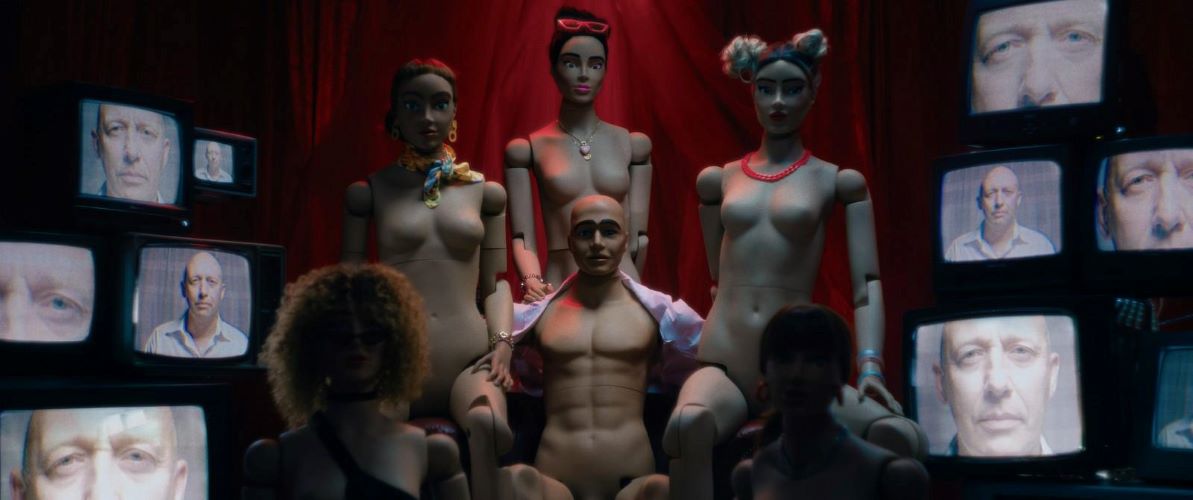
Daria Kashcheeva’s Electra is a fascinating psychological tempest merging live action and stop-motion animation. At the center of this whirlwind are the traumatic events surrounding Electra’s 10th birthday, which are recreated with wild and brilliant imagination. The film opens with a documentary-like feel, as the adult Electra (Zuzana Částková), hesitantly begins to speak, yet the film immediately plunges into the realm of memory and imagination, densely textured with evocative images, as the focus shifts back and forth from 10-year-old Electra (Marie Verner) who experiences the day, to the adult Electra who lives its reverberations. Riveting, intense, and thought-provoking, the film raises issues of sexuality, abandonment, family relationships, identity, and the longing for love and acceptance. Electra was produced by FAMU – Film and TV School of the Academy of Performing Arts in Prague, and premiered at the 2023 Cannes Film Festival.





